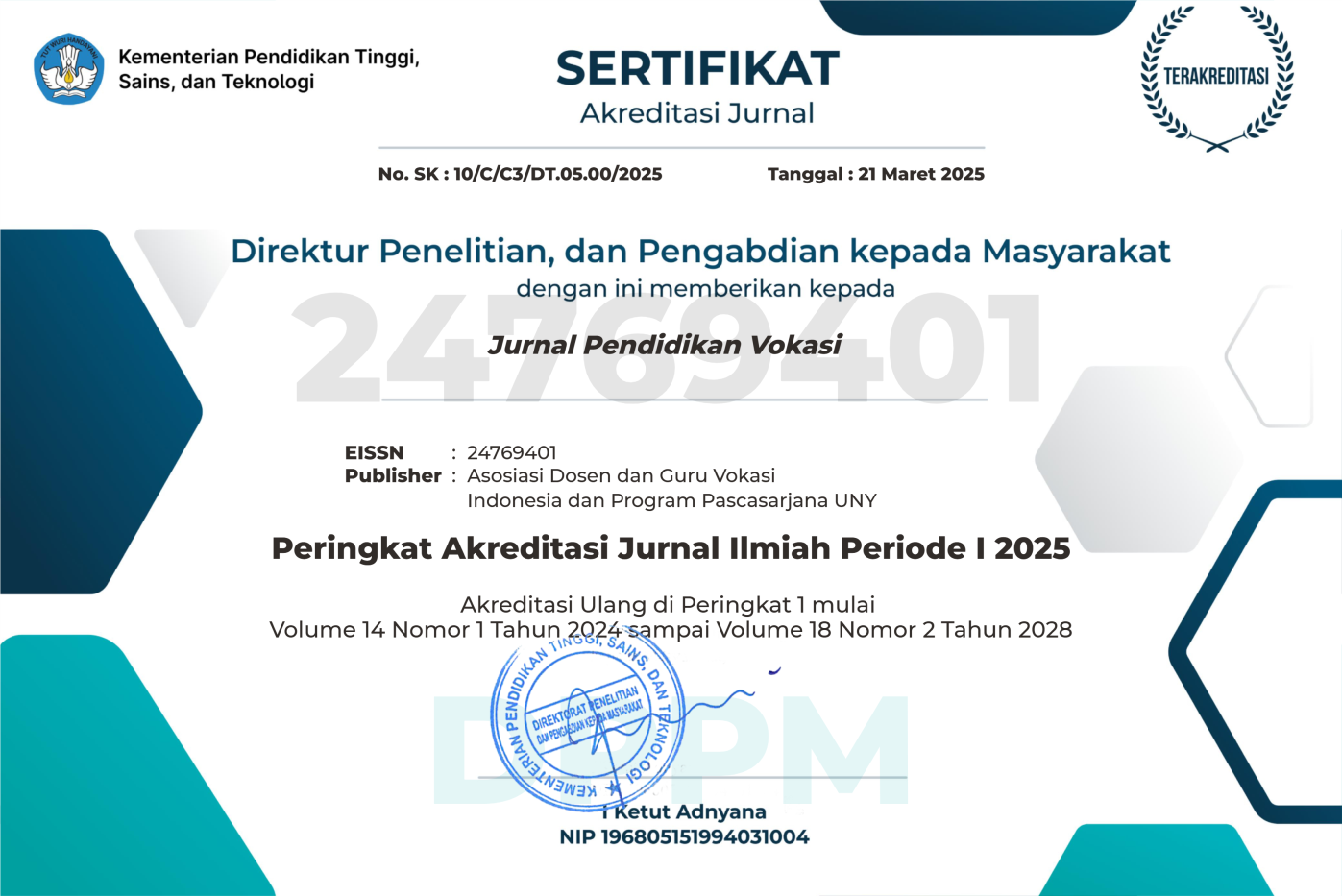Cognitive apprenticeship in vocational students mathematical decision making skills
DOI:
https://doi.org/10.21831/jpv.v13i1.52831Keywords:
Calculus course, cognitive apprenticeship, decision-making skills, video-assisted, vocational educationAbstract
Downloads
Published
How to Cite
Issue
Section
Citation Check
License
The authors submitting a manuscript to this journal agree that, if accepted for publication, copyright publishing of the submission shall be assigned to Jurnal Pendidikan Vokasi. However, even though the journal asks for a copyright transfer, the authors retain (or are granted back) significant scholarly rights.
The copyright transfer agreement form can be downloaded here: [JPV Copyright Transfer Agreement Form]
The copyright form should be signed originally and sent to the Editorial Office through email to jpvokasi@uny.ac.id
Jurnal Pendidikan Vokasi by http://journal.uny.ac.id/index.php/jpv is licensed under a Creative Commons Attribution-ShareAlike 4.0 International License.














